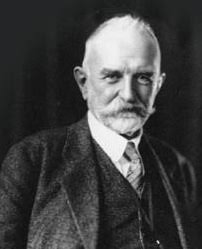Hey Bloggers, our Blog for this week is on Capitalism, it's pros and cons. Well why don't we start by defining what that is. Capitalism is the organisation of society in a way that the both the wealth and means of production are privately owned by capitalists (business owners etc), where products and assets are produced for profit. In capitalism, according to Weber, the workers are free to sell their labor for profit. Marx however believed that in Capitalism, the proletariat are exploited by the bourgeoisie, and makes profits off of them.
The greatest benefit of Capitalism is that it Promotes economic growth, because of competition in the open markets (wall street/stock market). Individuals have more business options. It allows for little guys (working class) to move up in social rankings, or get promotions. It basically makes upward mobility easier. in a capitalist economy that hard work is rewarded. Another benefit is that consumers get the highest quality of products for the cheapest prices. The reason being is that because of the competition of the open markets, business owners have to be smart about their prices, if they want people to buy their products.
The greatest benefit of capitalism is also its greatest drawback, Competition doesn't always bring out the best in people. Some may take it to far, and use "questionable" tactics when dealing with opponents.
Swaggology Of Sociology
Sunday, April 15, 2012
Saturday, April 7, 2012
GlObAliZaTiOn - 全球化
Hey bloggers, today i'll be talking about a little thing called Globalization (btw the title is half chinese). Globalization is the theory that the development of social, cultural, and economic relationships on a world scale has created a single social order. Globalization comes with many different pros and cons. Some people believe that globaliztion is the growing mdominance of western forms of political, economic,and cultural life, and the proliferation of new information technologies.
To some people, globalization means the development of an increasingly integrated global economy marked especially by free trade, free flow of capital, and the "tapping of cheaper foreign labor markets."
The general complaint about globalization is that it has made the rich richer while making the poor/broke poorer. It is wonderful for investors, but hell on workers.Multinational corporations are accused of social injustice, unfair working conditions, including slave labor wages and poor living and working conditions, as well as a lack of concern for the environment, mismanagement of natural resources, and ecological damage. So basically globalization makes it easier for rich companies to act with less accountability. They also claim that countries’ individual cultures are becoming overpowered by Americanization.
However Globalization isn't all bad, it has the potential to solve problems like unemployment and poverty. Now there is a worldwide market for companies and consumers to access products from different countries. There is cultural intermingling. Each country is learning more about other cultures, which can also be used as an argument to the belief that globvalization is destroying individual cultures
To some people, globalization means the development of an increasingly integrated global economy marked especially by free trade, free flow of capital, and the "tapping of cheaper foreign labor markets."
The general complaint about globalization is that it has made the rich richer while making the poor/broke poorer. It is wonderful for investors, but hell on workers.Multinational corporations are accused of social injustice, unfair working conditions, including slave labor wages and poor living and working conditions, as well as a lack of concern for the environment, mismanagement of natural resources, and ecological damage. So basically globalization makes it easier for rich companies to act with less accountability. They also claim that countries’ individual cultures are becoming overpowered by Americanization.
However Globalization isn't all bad, it has the potential to solve problems like unemployment and poverty. Now there is a worldwide market for companies and consumers to access products from different countries. There is cultural intermingling. Each country is learning more about other cultures, which can also be used as an argument to the belief that globvalization is destroying individual cultures
Wednesday, March 7, 2012
Mainstream Swagg B-)
Hey Step Uppers in Mrs. Basi's 4th block, I decided to actually do my blog on time. Our job this week is to discuss the forces and institutions that help shape popular culture. Well you can infer from my title, that i will be talking about mainstream culture (later on in the blog). Mainstream is usually the dominant trend in opinion, fashion, or the arts. Institutions that influence what "mainstream" is, are networks like MTV, BET etc. Those networks show films, music videos, and celebrities. The way that influences popular culture could be, if kids want to buy the clothes a certain celebrity was wearing while appearing on those networks (everyone started wearing skinnys after the New Boyz came out), or start saying the slang they heard in a movie. However Tv networks aren't the only forces that influence pop culture. Any business man that is in the fashion industry (Macys, JC Penny, Ralph Lauren, Arizona), can pay celebrities or athletes to wear their clothes, or just shoot commercials about how cool and "trendy" their brands are. That's another thing that influences pop culture, name brands. 5 years ago, pollos sold for as little as $7, now, pollo is considered a name brand, and some of their underwear cost $20, it's ridiculous.

Sunday, March 4, 2012
Hi Bloggers, today i'm blogging about a topic, that not many people are fond of, Symbolic Interactionism. It is a theory developed by G.H. Mead, it emphasizes motives and meanings for individuals. It focuses on the importance of symbols for people, particularly language, as the core elements of all human interaction. Basically, symbolic interactionism is concerned with the principles of face to face interaction. Mead, was more intersted in psychology over sociology, and this theory kind of reflects this, because symbolic interactionism deals a lot with socialisation. That being human is not just about being born, but becoming a social being (interactions the child has, with people around him/her, and the child's environment).

This theory, however, does correlate back to sociology. Mead says that self-conscious beings learn to understand that id they want to take parts in social interactions, they have to recognise that they have a role to play, and how they play this role will effect others. Which is sociology, the sudy of relationships, whether nice or bad.
This theory, however, does correlate back to sociology. Mead says that self-conscious beings learn to understand that id they want to take parts in social interactions, they have to recognise that they have a role to play, and how they play this role will effect others. Which is sociology, the sudy of relationships, whether nice or bad.
Saturday, February 18, 2012
Fight Night round 12 FunctionalismVsMarxism
To disprove Mrs. Basi's theory, our blog topic for this week is Which sociological theory has
withstood and will continue to withstand our rapidly changing society:
Functionalism or Marxism? In my opinion, functionalism wins this fight. It is defined as a sociological perspective which emphasizes the functional importance of institutions in society, and their role in maintaining a value consensus which leads to continuity in that society. We in the U.S basically live in a functionalist society, where different institutions play different fundamentally important roles, to help our society strive.

Marxism on the other hand is defined as a sociological perspective, written by Karl Marx, focusing on his division of society into an economic base and superstructure,and the analysis of class conflict as the main source of social change. While this theory may possibly still exist in certain countries, in the majority of the world, it's dead, has been dead for a while now. The closest example that smells remotely like class conflict pushing for social change recently in the U.S is the Wall Street debacle, and that can't really be classified as Marxism. So now you tell me, who the clear winner of this fight is.
withstood and will continue to withstand our rapidly changing society:
Functionalism or Marxism? In my opinion, functionalism wins this fight. It is defined as a sociological perspective which emphasizes the functional importance of institutions in society, and their role in maintaining a value consensus which leads to continuity in that society. We in the U.S basically live in a functionalist society, where different institutions play different fundamentally important roles, to help our society strive.
Marxism on the other hand is defined as a sociological perspective, written by Karl Marx, focusing on his division of society into an economic base and superstructure,and the analysis of class conflict as the main source of social change. While this theory may possibly still exist in certain countries, in the majority of the world, it's dead, has been dead for a while now. The closest example that smells remotely like class conflict pushing for social change recently in the U.S is the Wall Street debacle, and that can't really be classified as Marxism. So now you tell me, who the clear winner of this fight is.
Monday, February 13, 2012
Pros&Cons of classes of the future :-)
To clarify classes of the future are the online classes. There are many benefits to an online class. The student does not have to do his/her work within a specific time everyday, does not have to be in the same room at the same time everyday. If he/she does not understand the material he/she can always ask the online teacher for help, or just browse the Internet. There is no late work(unless the student chooses not to work on the online classes), and students can work on their own pace. It is my opinion however that the cons of an online class outweigh the pros. While it is true that there is no set time for the student to do his/her work, for certain students that isn't always a good thing, some of them may never log in to do their work. They may forget, or just not get the same motivation they would in school. While it is true that the student can "email" the student for help, face to face interaction is the best way to learn, and nothing says that the student will be looking up anything to do with his/her online class while they're browsing the net, they can be looking at anything (Facebook). While it is true that students can work at their own pace, without the proper motivation their pace can be to slow.
Sunday, February 5, 2012
Republicans (smh :p)
This week we have to blog about the 2012 Republican Primaries. The 2012 republican primaries, are selection processes in which voters for the Republican voters, get to choose the Republican nominee for President of the United States. This primary, was the first primary influenced by the Tea Party Movement, or TPM. TPM endorses reduced government spending opposes tax in varying degrees, and reduction of the national debt, and federal deficit. The name adheres to the Boston Tea party in 1773. Anyways two candidates who ran in 2008, ran again this year; Ron Paul, and Mitt Romney. This year's primary was also filled with scandal, with Hermain Cain, and Rick Perry. In order of popularity the Candidates are/were Mitt Romney, Newt Ginrich, Ron Paul, and Nick Santorum. While i'm not a Republican, i really liked Ron Paul, and thought hat he was the best candidate, but apparently the Republican voters don't agree with me. I will agree that Republicans are the ones who gained this country its freedom, and that this nation was founded on Republican ideals, however in our current era, in my opinion, the Democrats have carried this country, and stopped it from destroying itself. (just look at Obama's stats). Sorry just had to add my opinion.
Subscribe to:
Posts (Atom)